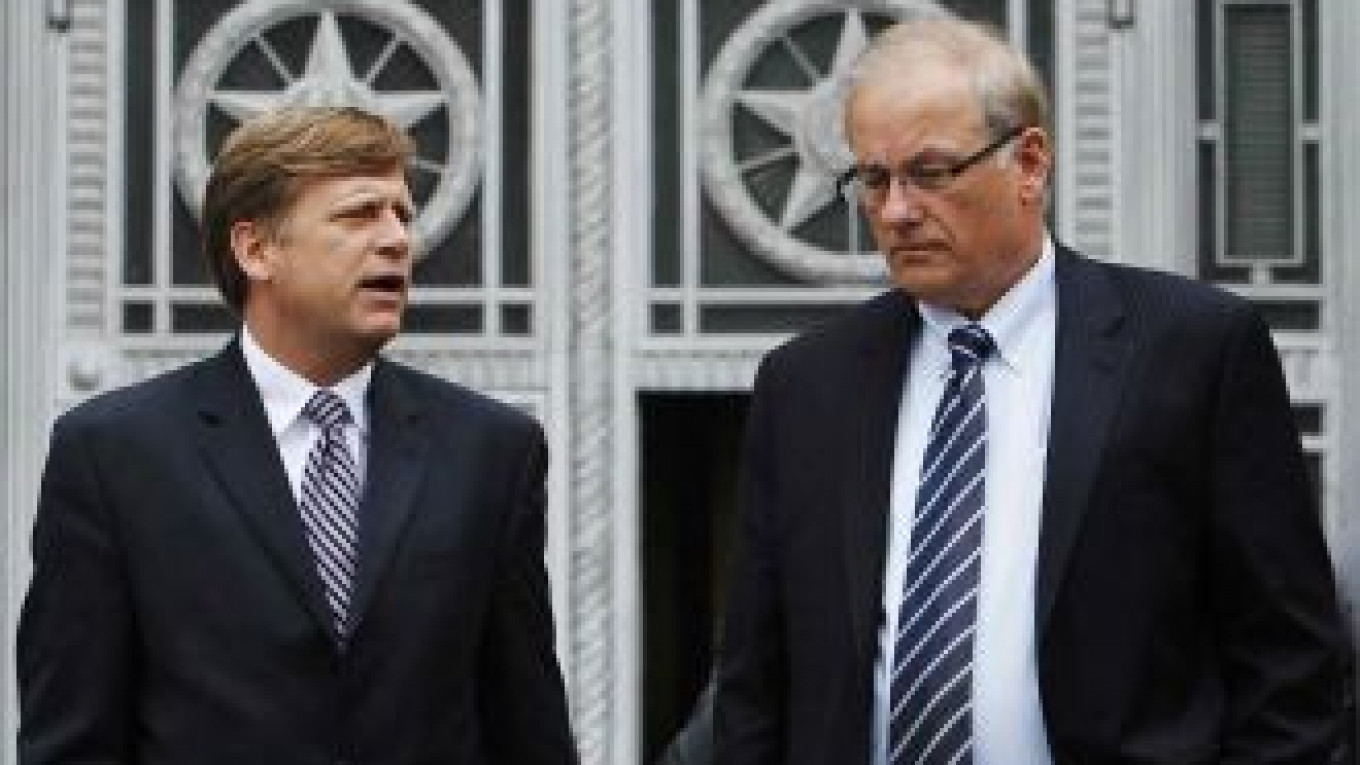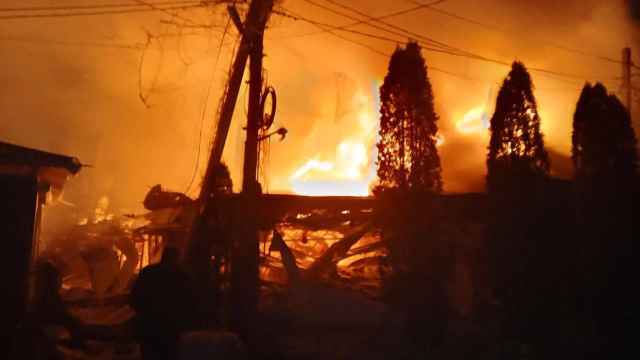The United States stepped up pressure on Russia to support a Syrian power transfer that would include President Bashar Assad's exit after the second reported massacre in weeks deepened doubts that a UN-backed peace plan could work.
Senior U.S. State Department official Fred Hof and Ambassador Michael McFaul held talks on Friday with Deputy Foreign Ministers Gennady Gatilov and Mikhail Bogdanov, the Foreign Ministry said. Hof and McFaul made no comment to reporters outside the ministry building.
U.S. officials have suggested that Secretary of State Hillary Clinton sent Hof to Moscow as part of an effort secure a transition strategy that the United States says must include Assad's full transfer of power.
The Foreign Ministry described the talks as "an exchange of opinions on ways to foster a peaceful resolution in Syria with an accent on mobilization of international support in the interests of fulfillment of Annan's plan by all sides."
While the United States wants Russia to put pressure on Assad, Moscow says Western and Arab nations must use their influence to push insurgents fighting for the Syrian leader's downfall to halt violence and hold talks with the government.
Eager to maintain its firmest Middle East foothold and stop Washington and the West from pushing governments from power, Russia has used its UN Security Council veto and other tools to protect Assad from coordinated condemnation and sanctions.
President Vladimir Putin says he is not on Assad's side, and Russia says it would be open to his exit from power as long as it is a result of an inclusive political process among Syrians without interference — and that it must not be a precondition.
Prospects for a political process appear increasingly slim, prompting Western states to redouble calls for Moscow to apply more pressure on Assad to end violence in which the United Nations says his forces have killed more than 10,000 people.
On Thursday, UN Secretary-General Ban Ki-moon described the reported killing of at least 78 villagers by Assad's forces as "unspeakable barbarity" and warned that civil war was imminent.
International envoy Kofi Annan acknowledged that his U.N.-Arab League peace plan, which Russia has strongly backed, was not working and said there must be "consequences" for those who do not comply.
Russia, which helped win Assad's nominal support for the peace plan, says the reported massacre in Hama province and the killings of 108 people late last month in the Houla region underscore the need to support Annan's plan.
Bogdanov said Friday that the six-point plan could be adjusted to improve implementation but that its core elements must remain, RIA-Novosti reported.
The plan, which demands an end to the violence, calls for a political process but includes no direct call for Assad's exit.
Russia has resisted pressure to change its stance on Syria and has not joined other nations in blaming the killings squarely on the government, saying both sides had a hand in the Houla massacre. It has not assigned blame for the latest killings but said they were aimed at scuttling Annan's plan.
During a visit to Beijing by Putin, a regional security alliance led by Russia and China said it opposes military interference, forced power handovers and unilateral sanctions in dealings with the Middle East.
Foreign Minister Sergei Lavrov reiterated on Thursday that the UN Security Council, where Russia and China have twice used their vetoes to block condemnation of Assad's government, would not authorize foreign intervention in Syria.
But Moscow has criticized Assad at times and courted his opponents, suggesting that it may be hedging its bets.
Analysts say Putin could seek an orchestrated exit of Assad that could be presented as the work of the people, particularly if he doubts that Assad can hang onto power for long and sees a chance of Moscow maintaining influence.
Russia could calculate that it has more to gain by claiming a peacemaking role than by backing Assad. But its influence has limits and any effort to engineer his exit would have to be carefully engineered to protect Russian interests and save face.
A Message from The Moscow Times:
Dear readers,
We are facing unprecedented challenges. Russia's Prosecutor General's Office has designated The Moscow Times as an "undesirable" organization, criminalizing our work and putting our staff at risk of prosecution. This follows our earlier unjust labeling as a "foreign agent."
These actions are direct attempts to silence independent journalism in Russia. The authorities claim our work "discredits the decisions of the Russian leadership." We see things differently: we strive to provide accurate, unbiased reporting on Russia.
We, the journalists of The Moscow Times, refuse to be silenced. But to continue our work, we need your help.
Your support, no matter how small, makes a world of difference. If you can, please support us monthly starting from just $2. It's quick to set up, and every contribution makes a significant impact.
By supporting The Moscow Times, you're defending open, independent journalism in the face of repression. Thank you for standing with us.
Remind me later.






